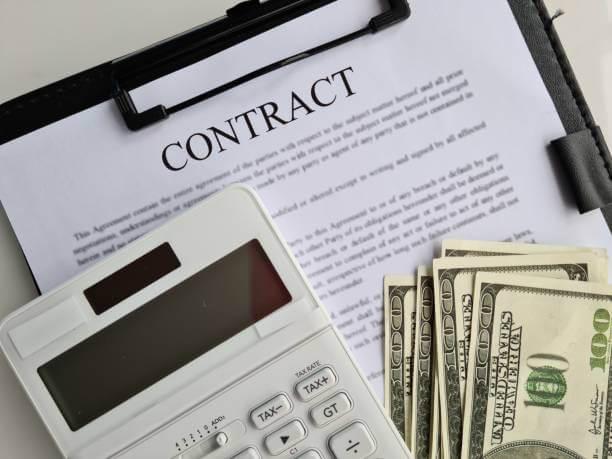
The term "title insurance" may be mentioned as you begin researching the real estate market. Knowing what it means, how much it costs, and why it's crucial can help you make better choices when buying or selling a home.
In this article, we will show you the particulars of title insurance in Texas, addressing its costs, benefits, and other essential factors to equip you with the information needed to make well-informed real estate decisions.

Before delving into the details, we must understand the main aspects and investigate the crucial elements that constitute title insurance in Texas. Here are some of the critical components that define this insurance:
A thorough search of public records is performed prior to issuing a title insurance policy. This aims to identify any defects, such as liens, encumbrances, or other legal issues, that might affect the title of the property.
Title insurance typically covers the property owner (owner's policy) and the lender (lender's policy). The owner's policy protects the property owner's financial interests, while the lender's policy protects the lender's investment in the property.
The amount of coverage typically corresponds to the purchase price for an owner's policy and the loan amount for a lender's policy. The policy remains in effect as long as the insured has an interest in the property.
Title insurance requires a one-time premium payment, often paid at closing. This premium covers the title search cost and the insurance policy itself.
In cases where the property is subject to particular easements or constraints imposed by the government, for example, the title insurance policy would normally mention certain exclusions and exceptions that are not covered.
If a defect in the title is discovered after closing, the title insurance company will either handle the legal expenses to defend the title or compensate the insured party for the financial loss, per the policy's terms.
The Texas Department of Insurance regulates title insurance in Texas. Rules, rates, and forms must comply with state regulations, ensuring consumer protection.
In Texas, title insurance is often integrated into the closing process. It's not only about protecting the buyer or lender but also about ensuring a smooth transition of property ownership.
These are additional coverages or modifications to a title insurance policy customized to suit the particular needs or concerns of the buyer.
An owner's policy lasts as long as the insured, or their heirs have an interest in the property. A lender's policy lasts as long as the mortgage remains unpaid.
Texas title insurance protects homebuyers and mortgage lenders from title difficulties. Familiarizing oneself with these vital components allows individuals to make well-informed choices when buying or refinancing a property.

After providing an overview of the primary aspects of title insurance, the next step is to analyze the factors that influence the price of this service in the state of Texas. Below are the most important considerations:
The insurance premium is directly proportional to the property's value. In simple terms, as the property's value increases, so does the cost of title insurance. This is because higher-value properties represent greater financial risks if title issues emerge.
Where the property is situated can influence the price of title insurance. For example, the risk assessments for urban areas might differ from rural locations. Therefore, the cost of title insurance is often linked to the property's specific geographical location.
The policy type also plays a role in cost determination. While the basic policy covers common title issues, the expanded option offers more thorough protection. Though more expensive, the extended policy provides additional security.
Your demands and financial limitations can be met with a decision that takes these factors into account. Whether opting for basic or expanded protection, title insurance is a fundamental tool in securing your investment and peace of mind in the property transaction process.
The cost can vary depending on factors like the property's value and location. On average, the premium can range from 0.5% to 1% of the property's purchase price. So, if you're buying a home for $300,000, you might be looking at a title insurance cost of $1,500 to $3,000.
In spite of the fact that the price of title insurance in Texas may initially appear to be quite high, it’s well worth the price to guarantee that you are protected from any legal issues that may occur down the line.

Imagine buying a home for $300,000 without title insurance. A few months later, someone claims ownership rights, challenging your ownership. Without title insurance, you could face thousands of legal costs, possibly even losing the property.
Given its relatively modest cost, obtaining title insurance in Texas is a practical decision. It offers essential protection for property ownership, shielding you from potential legal complications that could otherwise prove financially draining.
Looking to secure your property investment with quality insurance? At Lone Star Best Insurance, we offer customized insurance policies at competitive rates. Our experienced team is here to provide transparent pricing and coverage.
Contact us today and find out just how much insurance in Texas can cost for you!
Grasping how much title insurance is in Texas is an important aspect of the home-buying process. Although the price might seem like a slight drawback, it's a reasonable charge to guarantee to safeguard against uncertainties.
Yes, you have the ability to negotiate the premium of title insurance with the title company in Texas. This gives you an opportunity to adjust the cost, similar to haggling over a price in a store.
Changing title insurance companies during a property transaction in Texas is possible but might lead to complications. Hence, selecting the right company at the start of the process is generally advised to avoid potential issues later on.
No, title insurance in Texas focuses on protecting against hidden or undiscovered title defects that might affect ownership rights. It does not offer protection related to property market value changes.
6851 NE Loop 820, Suite 220
North Richland Hills, TX 76180
6851 NE Loop 820, Suite 220
North Richland Hills, TX 76180
1750 E Southlake Blvd Ste 100
Southlake, TX 76092
At Lone Star BEST Insurance, we know that choosing an insurance plan can feel overwhelming. Our mission is to help you feel comfortable and knowledgeable and to help you find plans that meet your needs!
We are licensed in Texas, Arizona and New Mexico.